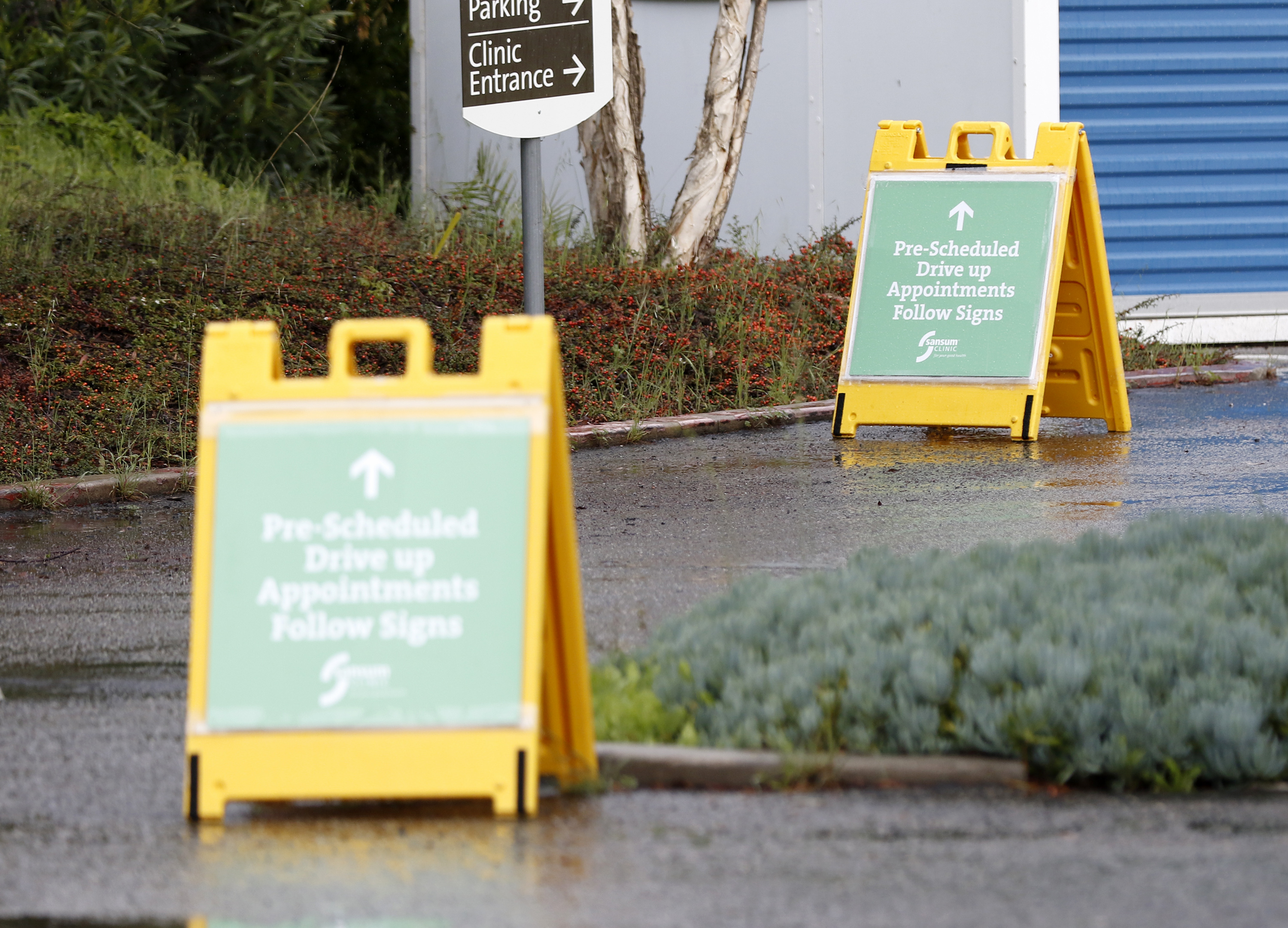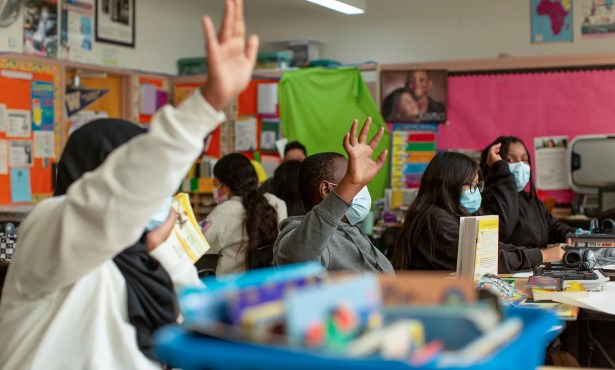Santa Barbara County Starts Car-Based COVID-19 Testing
Sansum Is One of Two Providers Offering Service by Appointment Only

Sansum Clinic spokesperson Jill Fonte confirmed that “drive-through” testing — more officially known as “car-based testing” — will be made available for the COVID-19 virus beginning Tuesday morning, but by appointment only and only at the recommendation of a patient’s health-care provider. Fonte stressed that people cannot show up without an appointment.
Sansum is one of two providers that will be offering “car-based” testing. (The term “drive-through” causes severe heartburn among health-care providers, as it conjures the possibility of long lines of anxious members of the public for whom the test might not prove to be medically appropriate.) Sansum is dispatching a team of 5-10 employees to the task. They will be stationed in a trailer outside the Pesetas Lane clinic space where the Sansum Urgent Care is located. Staff will test patients with appointments in their vehicles. They will be wearing gloves, gowns, goggles, a face shield, and a mask.
“We don’t know the extent of this project, as it is still an experiment,” said Fonte, “to see if we can make this model work.”
According to information provided at a press briefing Monday night hosted by the Santa Barbara County Public Health Department, 128 tests have been conducted to date in Santa Barbara County. Of those, 31 came back negative, one was positive, and 96 were still pending final determination. On Tuesday morning, a second positive case in the county was confirmed. Until Monday evening, the number of tests reported was far lower — in the low 20s — reflecting the multiplicity of testing entities and lack of a cohesive reporting program. In response to this problem, health officials with the county and all the major providers spent the better part of the weekend hammering out new protocols that outlined which agencies would be conducting tests for which vulnerable populations and how they would be triggered by which constellation of symptoms and risk profiles.
For those contemplating drive-through tests, Fonte stressed that unless medical symptoms dictated otherwise, they should stay at home. Those qualifying for the test must answer in the affirmative whether they have a fever in excess of 101.4 degrees, whether they have a new cough, and whether they experience shortness of breath or pain while breathing. Those who answer yes to any of these is then asked a series of other questions by health screeners to better focus limited testing resources. Those questions include: Have you been to China, Europe, South Korea, Japan, or Hong Kong in the past 14 days? Are you 60 years or older? Do you have cancer, diabetes, chronic cardiac disease, or lung disease?
Fonte said Sansum is allowing patients to determine who their provider is; some may choose their primary care doctor, while others may prefer a specialist. Not clear, however, is what happens for patients who have no doctor.
Fonte said the test itself — a swab administered to the back of the throat and the back of the nose — should take about 30 minutes to administer. Results, she cautioned, would not be back for five to seven days, as the lab handling the tests — Pacific Diagnostics — is located out of state.
The issue of testing capacity has hovered long, loud, and largely unresolved over discussions of county’s preparedness to the gathering pandemic. Social media sites have been popping with anecdotal reports of patients who seem to present many of the symptoms — or have come back from trips — and have not been able to get a test ordered. Others have complained about not being able to get test results in a timely fashion or of some physicians not being equipped to administer the tests because of limited safety gear, such as face masks.
Early last week, the county’s total capacity was 42 tests a day, to be split in public labs in Ventura and San Luis Obispo Counties. But that was before private labs Quest and LabCorps jumped in. At Monday night’s press briefing, public health authorities reported having 1,700 swab kits; these are the kits needed to take samples from the back of patients’ throats and noses coupled with the ingredients necessary to keep the samples alive. While that sounds like a lot, county health-care professionals are targeting a population of about 30,000 as being of “tier one” concern. That means they are either very old and very sick, living in nursing homes — there are 250 licensed senior care facilities in the county — or in county jail. Also included are first responders and front-line health-care professionals who are at risk of exposure. These kits, while currently plentiful, are reportedly made in China, and there are questions about the reliability of the supply chain.
COVID-19 remains a syndrome for which there is no cure and no treatment, Fonte stressed. People who test positive will be required to quarantine themselves. Hospital beds will not be available except for those severely affected.


